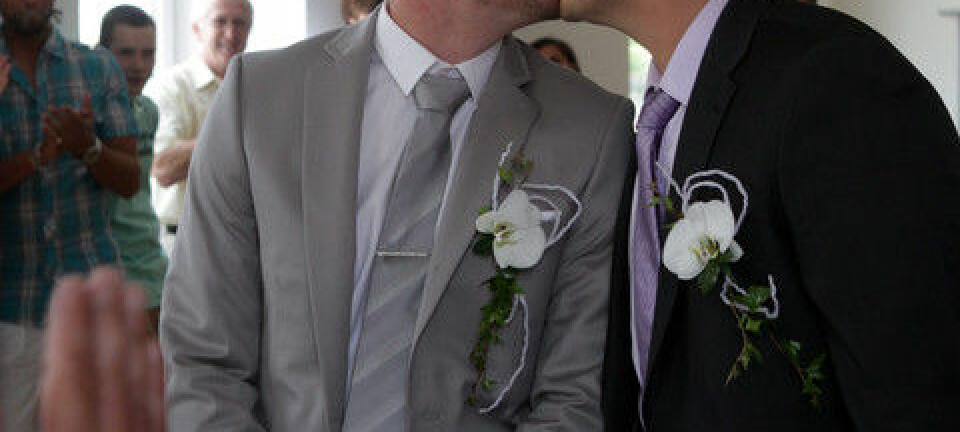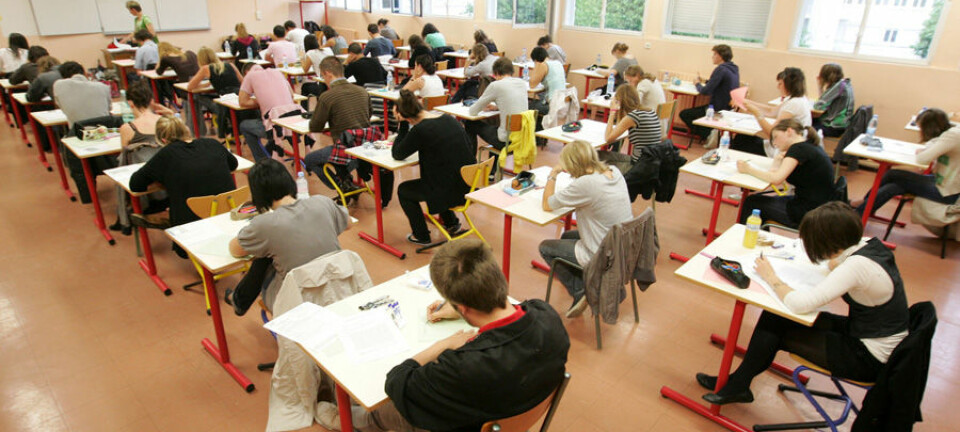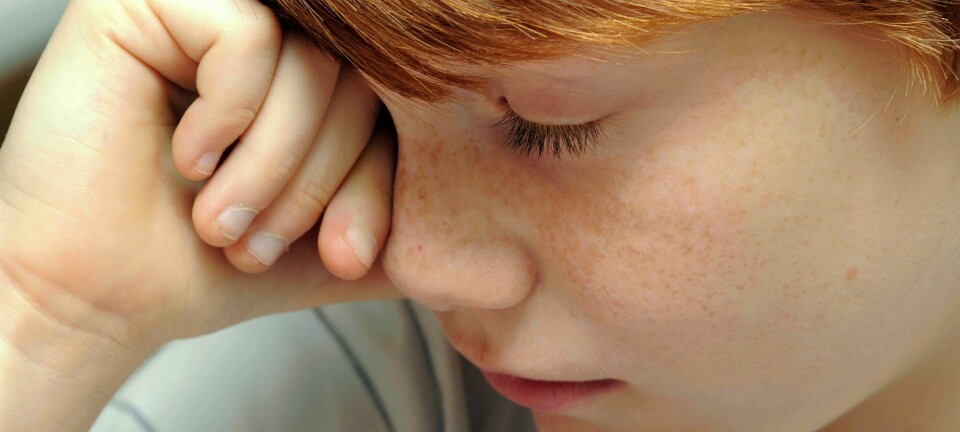An article from Nord University
Love matters more than genes for children with same-sex parents
Water just may be as thick as blood for children growing up with parents of the same sex. In a study of 25, they all reported a childhood that resembles any other childhood – where close family ties are established through mutual love and understanding.
Denne artikkelen er over ti år gammel og kan inneholde utdatert informasjon.
Rainbow-families are families that do not fit in to the traditional nuclear family, but which have one or more family member who consider themselves to be homo-, bi- or transsexual.
Concerns surrounding children that grow up with two mothers or two fathers have been under debate when considering these families.
Will other children be able to accept them? Will the children have difficulties?
Jorid Krane Hanssen at the University of Nordland, Norway, has conducted in-depth interviews with 25 individuals between 15 and 45 years of age. All these of which grew up with homosexual parents.
Substantial research on people growing up in rainbow-families has primarily been based on comparisons between them and people from so-called normal families.
Hanssen wanted to hear from them personally and to bring forth their own experiences.
Endless explanations
All the interviewees reported that they often had to explain themselves. They had to clarify, explain and answer to questions concerning their families and their parents’ sexual orientation.
Hanssen believes this shows how strongly hetero-normative perceptions still apply to Norwegian culture and that the heterosexual nuclear family is the norm.
Rebecca, 21 years old:
“Were we a family? No or yes, to a certain degree. We established traditions, we travelled, we lived under the same roof and we hanged around each other. But a family? From an external point of view I do not think people would call us a family.”
Keeping the parents in the closet
The interviewees reported using different strategies. Some chose an offensive method early on in their childhood, while others maintained an attitude of reserve towards explaining their parents’ sexual orientation.
Those who kept their parents’ sexuality a secret, explained that they were afraid of being labelled as lesbian or homosexual themselves.
These anxieties were especially strong during adolescence.
Nevertheless, everybody in the study eventually chose to tell others about their family background – and about their own views of their families.
Some of the interviewees were surprised over the lack of reaction concerning their lesbian or homosexual parents.
More than genes
Hanssen portraits the notion of a family as a notion subject to change –- much in the same way as the increasing numbers of divorces, children of one spouse and single parents have changed the concept of family in our time.
Camilla, 22 years old:
“Considering my childhood, I believe my family is just as much a family as a family with a mother, father and two children. I just have a different type of family – an alternative type of family. Yet there are plenty of children who grow up with just one mother or just one father, parents from broken marriages, or in cases where one parent has left or moved or where they are not present for whatever reason. So, my family is just as much a family.”
Henrik, 24 years old:
“For me, family means being around people I want to spend time with. People I know and trust, people who support me when things get difficult. The same people that would come to me if they had a difficult time. Family are people who care for me, and I for them.”
Only the happy cases?
Hanssen takes precaution in her study: To be able to interview children, the law requires consent from parents.
She points out that there is a possibility that she has only been given access to the most successful cases, and that children with a traumatic childhood have not been heard.
“I experienced at least a couple of times where the parents expressed themselves as positive towards my own life in a same-sex relationship.”
“This could have contributed to easier access to participants and that they perceived my presence as a researcher as one who would contribute in a positive way and less critically towards their family constellation,” says Hanssen.
However, she emphasises that her own position could just as much contributed to more participation by families who wished to and dared to participate.
Not so different after all
The researcher concludes that, overall, the people she interviewed did not perceive their childhood to be different from children who grow up with heterosexual parents.
She believes that blood-ties are not decisive in being a family or a good parent and that gender does not equate to good parenting.
Christoffer, 16 years old:
“Other families don't do things completely different from what we do – we eat the same way and do the same things...”




































